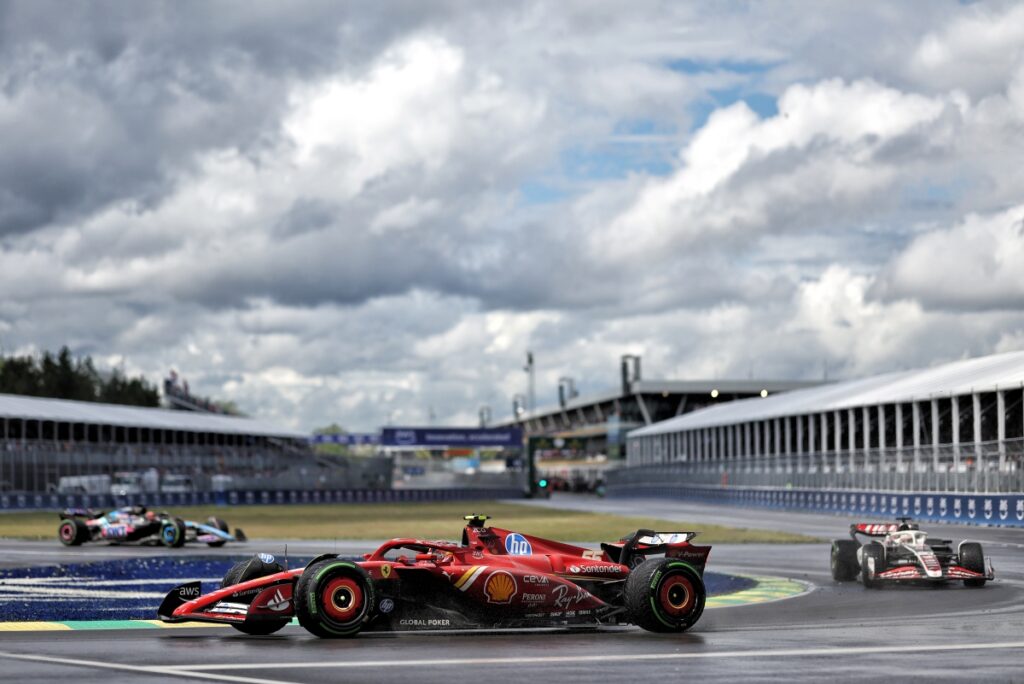Carlos Sainz's Risky Spin at the Canadian Grand Prix: What Really Happened?

In a sport where seconds can determine outcomes, Ferrari's Carlos Sainz made a split-second decision that would ultimately end his race at the Canadian Grand Prix. Starting back in 12th place, Sainz had his work cut out for him from the very beginning. The race began under wet conditions, making it even more challenging as he found himself behind slower rivals, losing valuable ground from the start.
Despite these setbacks, Sainz showed determination and resilience. As the race progressed and the track began to dry, he saw an opportunity to make a pivotal move. On slick tires and with a much-improved pace, he started to envision a finish within the points. The window was tight, but the potential rewards were high. This was a calculated risk—the kind that can either propel a driver into glory or end in disaster.
Unfortunately for Sainz, it was the latter. While navigating Turn 6 on slicks, he spun, making contact with Alex Albon's Williams. This incident not only ended his race but also exemplified the harsh realities of Formula 1 racing. Sainz admitted that he was striving to capitalize on gaining speed during the final stages, saying, “Only when we went on slicks towards the end of the race did I start to feel there was maybe potential for some points, and I was becoming a bit quicker.” His strategy was clear: risk it all to break into the top 10.
However, the conditions were far from ideal, and the gamble did not pay off. “I was just trying to take some risks to overtake people in the DRS trains to try and be close in sector two,” Sainz explained. “Probably touched maybe the wet patch. I don’t know. It’s a very strange way that I lost it there in mid-corner and ended our race.”

This wasn't just a tough break for Sainz but for the entire Ferrari team. The SF-24, expected to perform well at the Circuit Gilles Villeneuve, struggled more than anticipated with riding the kerbs. It left many, including Sainz, puzzled and disappointed. “It was a very weak, very disappointing weekend for the whole team because we never seemed to find a good pace,” he lamented.
What makes this more puzzling is that Ferrari’s car usually adapts well to such tracks. Sainz speculated that the issue might have been related to managing tyre temperatures effectively during qualifying, a factor that other teams seemed to handle better. “I think Canada was a bit of a one-off, a bit of a special one and we need to understand what happened as a team. There was clearly something the others were doing in qualifying with the tyres to prep them better,” Sainz concluded.
This double blow for Ferrari—its first double retirement since the 2022 Azerbaijan Grand Prix—allowed Red Bull to pull further ahead in the Constructors’ Championship, extending their lead to 49 points. As Ferrari heads back to Maranello, there’s a keen sense of urgency to sort out these issues and ensure they don't become a recurring problem.
The season is far from over, and both Carlos Sainz and Ferrari will be looking to bounce back stronger. The lessons learned from this race could prove invaluable as they aim to recapture their form and close the gap in the championship standings.